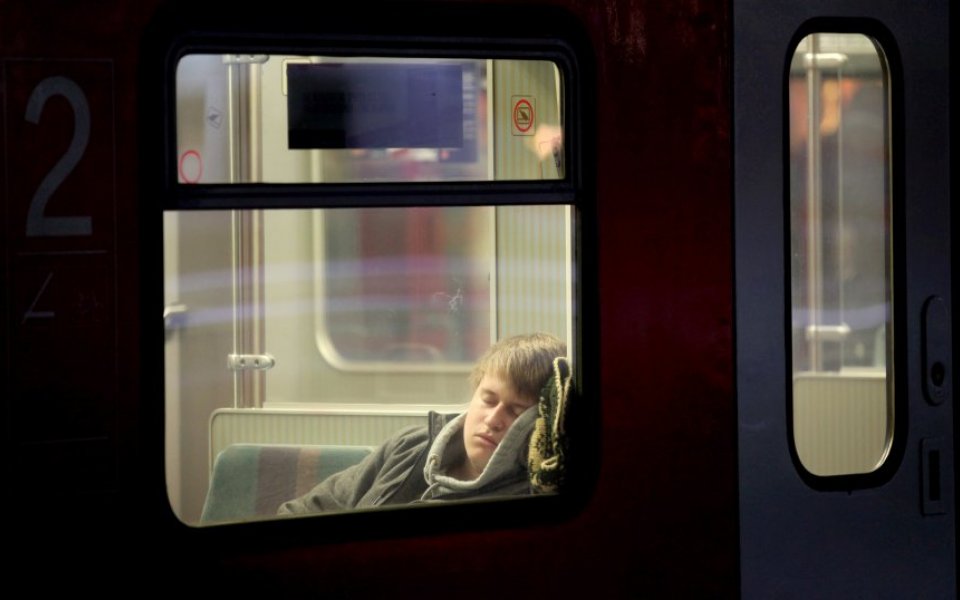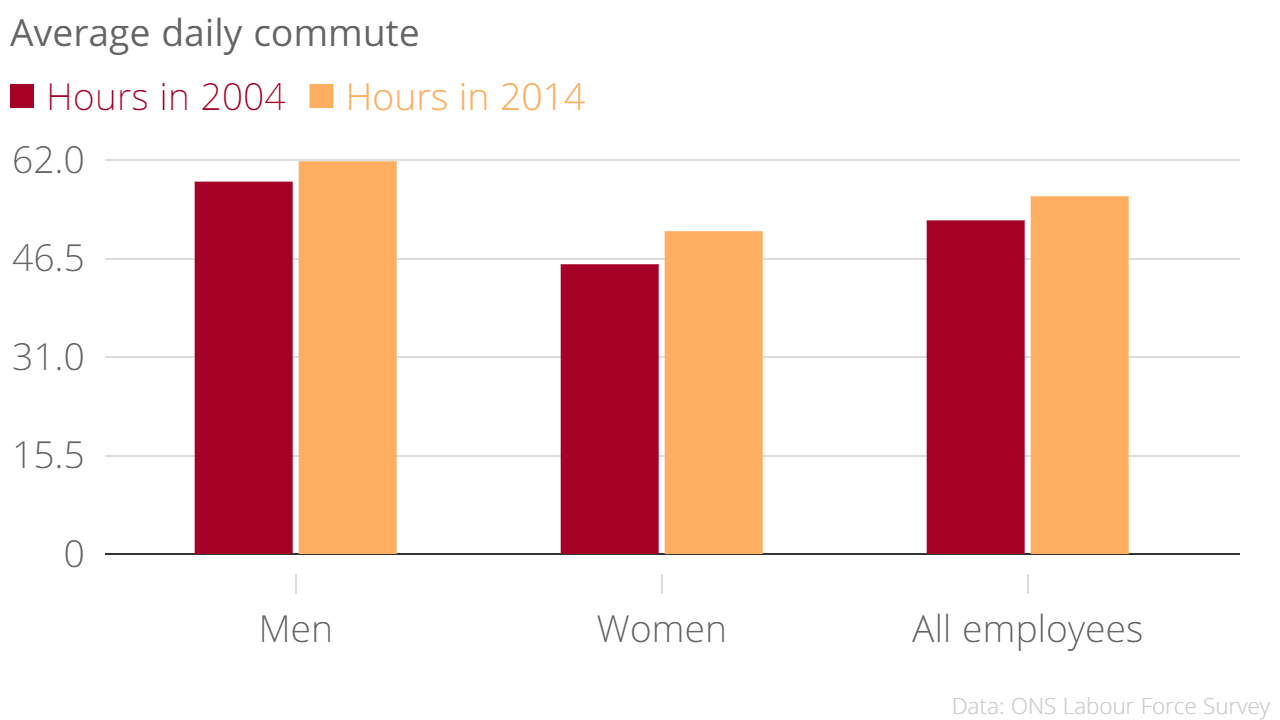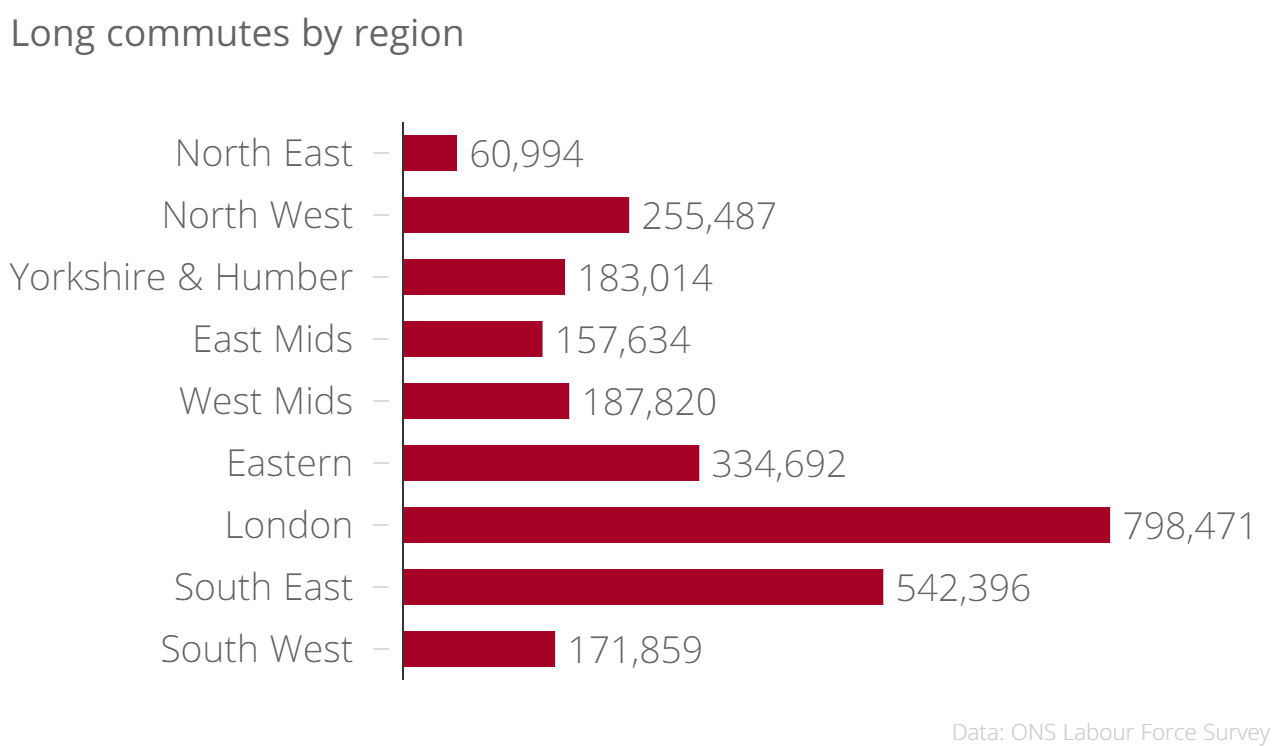Commute Smart Week: Sharp increase in the number of people travelling two hours a day to get to work – and it’s worst for women

Feeling exhausted by your long commute? You're probably not the only one. The number of commuters who travel for more than two hour travelling to and from work each day has shot up in the last decade – and women have got it worst.
Analysis of ONS data by the TUC has found that the number of commuters travelling more than two hours per day increased by 72 per cent from 1.7m in 2004 to three million in 2014.
There has been a similarly sharp rise in the number of people who travel for three hours each day, up 75 per cent from 500,000 to 880,000 in the last 10 years.
 The figures – which are published to coincide with Commute Smart Week – suggest women have it worst, with a 90 per cent increase in two-hour commutes and a 131 per cent increase in three-hour journeys.
The figures – which are published to coincide with Commute Smart Week – suggest women have it worst, with a 90 per cent increase in two-hour commutes and a 131 per cent increase in three-hour journeys.
 Unsurprisingly Londoners have to contend with the two-hour journey most with nearly 800,000 people saying that's how long it takes them to get in and out from work each day. But commuters in the South East have the longest overall journeys, with more than 200,000 people suffering a three-hour journey, compared with 143,000 Londoners.
Unsurprisingly Londoners have to contend with the two-hour journey most with nearly 800,000 people saying that's how long it takes them to get in and out from work each day. But commuters in the South East have the longest overall journeys, with more than 200,000 people suffering a three-hour journey, compared with 143,000 Londoners.
 South Easterners also saw the biggest increase in their daily commuter, with a 103 per cent rise in the number of people reporting a two-hour journey. Those in the South West, East Midlands and Wales also saw very large rises, up 102 per cent, 87 per cent and 76 per cent respectively.
South Easterners also saw the biggest increase in their daily commuter, with a 103 per cent rise in the number of people reporting a two-hour journey. Those in the South West, East Midlands and Wales also saw very large rises, up 102 per cent, 87 per cent and 76 per cent respectively.
On average UK commuting times rose by three minutes a day from 2004 to 2014, from 52 to 55 minutes, meaning workers are spending, on average, 11 hours and 42 minutes longer a year commuting now than they were 10 years ago.
The TUC said the increase in travelling times could be put down to a number of factors including the 2008 recession, which forced people to look further afield to keep or get a job; soaring rents which means workers can't leave near their jobs and a lack of investment in roads and railways, which means that in some cases the same journey is taking longer now than it used to.

TUC general secretary Frances O’Grady said: ““Employers need to address the problem that many of their staff are spending an ever-increasing number of hours getting to and from work.
“More home and flexi-working could easily be introduced to allow people to cut their commutes and save money. This would not only be popular with workers, but fewer, better-spaced journeys would help to beat overcrowding on the roads and railways.”
Work Wise UK’s chief executive Phil Flaxton added: ““Are we really prepared to move into winter with the same anticipated long and often disrupted commutes? Or, are we going to change the way we work by commuting less with the aid of internet and mobile technologies.
“Employers should grasp this opportunity by changing the way employees work and commute and introduce more flexibility to cut out these restrictive influences on business performance as well as the wellbeing of their employees."